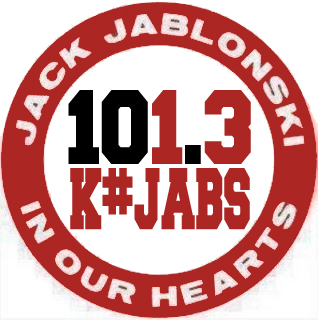Arbitron has always been the great whipping boy of Radio. When we drop unexpectedly and dramatically, it’s because “(Bad word removed since the internet is no place for profanity) screwed it up. Again.”
And when we go up, it’s because “(Really bad word for an act that is illegal in Alabama) finally got it
right.”
Like KOB-FM in Albuquerque, a perennially successful 18-34 station that, if the ratings were to be
believed, several years ago every woman in that demo went to the Bahamas. They actually pulled 0.0’s
in their target audience.
And of course the next month, they all came back.
Not so with KTFM around 2000. After a decade of ratings that were #1 With An Oomph, The Beat
launched on this Rhythmic Juggernaut and overnight they lost 60% of their numbers, never to return.
In the rubble and aftermath there was a lot of gnashing of teeth, blame placing and finger-pointing.
“We spent $200,000 on contesting last year alone!” “We ran the heaviest TV of any station in the
market”. They’d gotten on CNN for a Christmas stunt on the morning show. And on and on.
Jerry Clifton waited for the yelling to subside and calmly offered, “But the station doesn’t have an
emotional connection with the audience. It’s fun and goofy and plays great music…but it never has
once stopped being silly to acknowledge something in the community. It’s never evoked emotion. It’s a
great great jukebox.”
- Marketing
- Content
- Contests
- Appt. time features
- Spot-on music and Programming
Those are all keys to winning. But if you haven’t made that connection, you haven’t closed the deal and
you have “listeners”, not “fans”.
I’ve seen two stations in the past seven or eight years get decimated after giving up their hold on
the hearts of the audience. WPGC is a great example. After decades of being tightly entwined in the
community of Washington DC…they lost their focus and became stuck in the “we need to buy our
listeners” trap. They stopped delivering what the audience had come to expect, which is a station that
listens to them and is there for them.
Now, they’ve figured it out and the numbers are coming back. Their radar is up and whenever an
opportunity for them to jump on a local story, they’re not missing it. Even after putting this part of their
station culture on the shelf for about five years, their Digital guy was showing me social media numbers.
The pop culture stuff, the gossip, the contest spam vs. ANYTHING remotely community oriented. The
community stuff explodes with WPGC.
A similar station went through the same exercise in stupidity. They were fun. Their imaging was creative,
topical and occasionally stupid. Their talent were local and sounded like the market. But the biggest
things they ever did, involved them reacting quickly and decisively to huge local or even national stories.
These “things” were the solder that made the connection to the audience and engaged and activated
them.
Six months into their new PD, I was already having some worries. Their contesting promos, which had
actually won state awards and that had made their promotions sound over-the-top, was cut down to 27
second crap. “Just hit the important points and get out”.
And then…Virginia Tech occurred. I called the PD after the morning guy emailed me in a panic that
“We’re going to miss this!” Said, the Program Director? “Virginia Tech? Sure. If we were IN Virginia” and
laughed. This Mensa Candidate came as close to driving a heritage station of 20+ years out of the format
as I’ve ever seen.
KDWB in Minneapolis? They’ve done everything but put a man on the moon. Music? On target. The
station is marketed and promoted brilliantly. Great local talent that executes appt time contesting
and features. Dave Ryan and his morning show come to the table every day with amazing, edgy, noisy,
attention-getting content. And yet? The thing that seals the deal? Once or twice a year they’ll jump on
a story like a town in Oklahoma that got flattened by a tornado, and they’ll own it. They’ll activate the
audience. And you can’t beat stations that do that.
Maybe the biggest thing that station has done in the last decade was changing their name for a day to
honor a local highschool athlete who was paralyzed in a hockey game.

It was the #1 story in the state and they chose a plan that engaged the audience. It pushed buttons. It
connected them to the hearts and minds of the listeners.
These opportunities are out there every day and sadly so many stations are focused on rehashed
celebrity dirt that is immediately available from 800,000 other sources, or pushing some group
promotion that maybe 4% of the audience will play, that they’ll miss something that 90% of the
audience might actually care about.
And it’s the stuff that actually matters at the end of the day.


 Last Tweets
Last Tweets